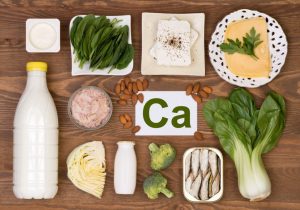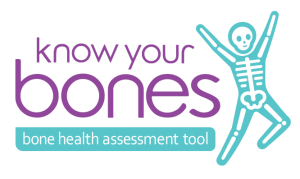Tips For Good Bone Health
We talk often about “good bones” and you may have heard others crediting their strength and wellbeing with having “good bones”. But just what does this mean, and how important are good bones to you?
At Nurse Next Door we believe good bone healthcare is imperative to Happier Ageing. Healthy bones are all about bone mass, or density. Ageing increases the likelihood of losing bone mass or bone density and for some people this loss occurs more quickly than the body can cope with, resulting in thin, fragile bones that break easily – a disease called osteoporosis.
Why does it matter to you?
According to the Australian Institute of Health and Welfare (AIHW), nearly 1 in 10 older Australians (aged 50+) reported having osteoporosis with four times more women than men of the same age.
So how will you know if your bones are healthy? As osteoporosis means you have low bone density, the most common symptom is a broken bone from an insignificant fall or incident that wouldn’t normally result in a fracture. Another telltale sign may be a rapid loss in height, often indicating fractures in the spine which are attributed to poor posture, or slouching.
Women are at greater risk of developing osteoporosis, particularly during menopause when oestrogen levels decrease and bones lose calcium and minerals at a faster rate. However, men also experience bone loss so it is important to be aware of your bone health regardless of your age or gender.
Building “good bones”
Your bone health is often in your DNA so be sure you know if your own parents, or anyone in your family, suffered from osteoporosis. Think about whether anyone in your family has broken a bone, or bones, from a minor fall as this may be a sign the disease runs in the family. The good news is, you can improve your bone health at any age and diet and exercise – two simple factors – play an important role in healthy bones.

Diet
Ensure your calcium intake is adequate – women over 50 and men over 70 years of age require 1300 mg per day and it’s ideal if you’re getting this through the food you’re eating. Milk and cheese, green leafy vegetables such as broccoli, fish like sardines or salmon (with bones) as well as nuts and seeds are all great sources of calcium.
If you have difficulty eating foods rich in calcium consider calcium supplements. Be sure to head outside as lack of exposure to the sun may mean you don’t have adequate levels of Vitamin D which help the body absorb the calcium. Just sitting outside reading a book can be beneficial.
Protein is also important to build and repair bones but a diet high in protein can lead to high levels of acid in the blood so be sure to accompany your protein-rich diet of meat, eggs and poultry with fruits and vegetables rich in potassium and magnesium to counteract the acid.
Exercise
Exercise is another sure-fire way to prevent poor bone health. Always speak with a trusted professional before embarking on any exercise regime, but consider the following types of exercise to prevent bone loss:-
 Weight-bearing – Something as simple as walking or dancing will work.
Weight-bearing – Something as simple as walking or dancing will work.
 Flexibility – Yoga and stretching will do the trick.
Flexibility – Yoga and stretching will do the trick.
 Resistance or Strength Training – Lifting weights or exercising in water.
Resistance or Strength Training – Lifting weights or exercising in water.
Exercises that increase your balance are also important to help reduce the risk of falls. According to Osteoporosis Australia falls are a common cause of fractures in Australians and around one-third of older Australians (over 65 years of age) fall each year. Preventing falls is as important as maintaining good bone health so be sure to work on your muscle strength and balance, and let someone know if you fall or are concerned that your balance is not what it should be.
Osteoporosis affects 200 million people worldwide. Focusing on your diet, exercise and talking to your trusted health professional, your nurse or home care provider will help you prevent or slow down poor bone health. There is plenty you can do today to work towards having “good bones” for the rest of your life.
Try this Bone Health Assessment Tool from ‘Know Your Bones” to check out your bone health.

Nurse Next Door Home Care Services makes it possible for you to keep living in your own home as you age. Visit our website to learn about our home care services or call us today on 1300 600 247 to get started with an obligation-free consult.
